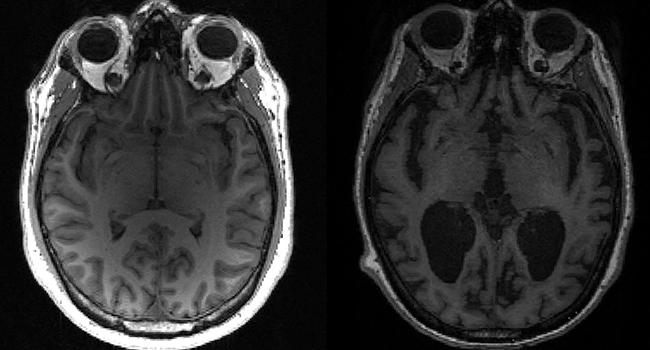Toxic protein clusters thought responsible for the cognitive decline associated with Alzheimer’s disease reach different regions of the brain early and then accumulate over the course of decades, according to a new study Friday, IgbereTV reports.

The research, published in Science Advances, is the first to use human data to quantify the speed of the molecular processes leading to the neurodegenerative condition, and could eventually have important implications for how scientists design treatments.
It also upends a long-held theory that said Alzheimer’s progression was mainly caused by clusters spreading between different brain regions in a “chain reaction,” as has been found in mice and was thought true of people too.
“Two things came together that really made this work possible,” Georg Meisl, a chemist at the University of Cambridge and the paper’s lead author told IgbereTV.
“One is very detailed data from PET (scans) and various different datasets we’ve put together, and the other thing is the mathematical models we’ve been developing over the past ten years.”







